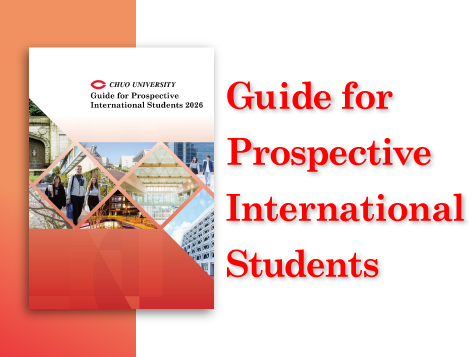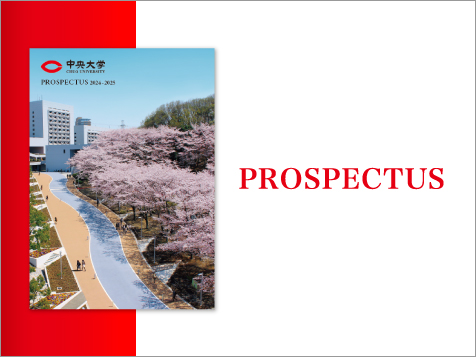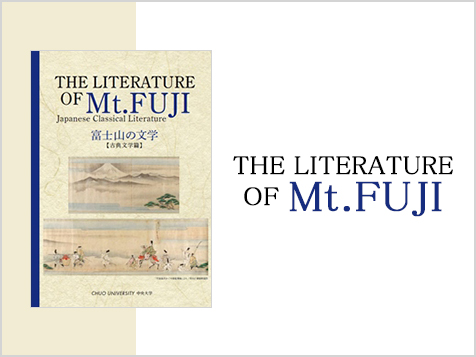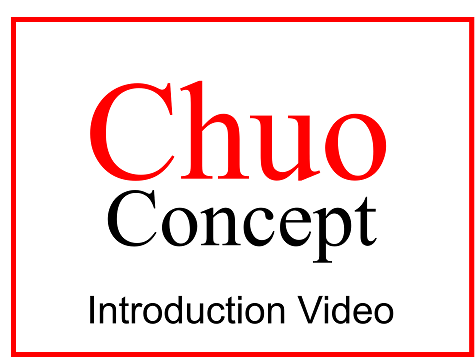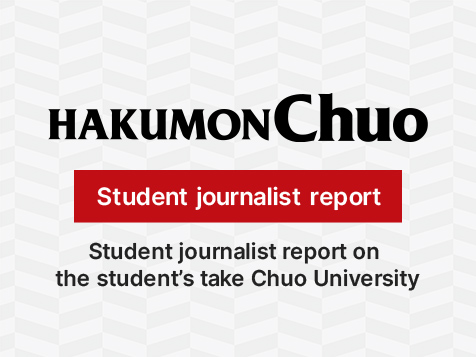Academics
Faculty of Law
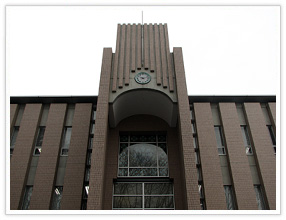
The history and tradition of the Chuo Law Faculty date back 137 years to the founding of Chuo University as the Igirisu Horitsu Gakko (English Law School). In the intervening years since 1885, Chuo has produced many talented graduates who have served in the fields of law, government, politics, and business. And while maintaining its longstanding traditions, the Law Faculty remains committed to reforming and updating its curriculum and educational methodology in order to respond to the needs of university students in our ever changing, globalizing society.
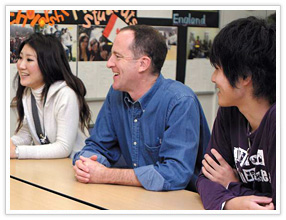
Chuo’s undergraduate law curriculum is focused on fostering skills and knowledge for graduate study at the Chuo Law School and for work or study in a broad range of professional fields. The Faculty offers numerous foreign language courses tailored to students’ needs and abilities; study-abroad programs continue to be created and expanded; and, new courses are regularly developed to help students realize more international perspectives. Other opportunities available include a wide range of courses taught in small-group seminars, as well as academic and professional training in essay writing, critical thinking, problem solving, discussion and debate. Above all, the Law Faculty aims to motivate and draw out the “can do” spirit within each and every undergraduate student.
Departments:
Law
International Law and Business
Political Science
Date of Founding: 1885
Campus: Myogadani Campus
Number of Students: Undergraduate Student Enrollment
Video: Studying Law at Chuo
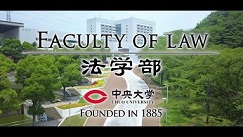
In this video, students and faculty members of the Faculty of Law talk about their experiences studying and teaching at Chuo University.
Using Scholarships to Gain International Experience
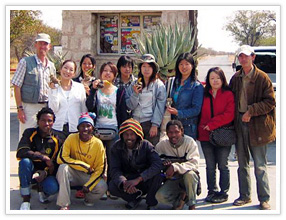
At Chuo University students can receive support for international study, internships and volunteer work. For example, in our Law Faculty there is a scholarship system, called YARUKI, to encourage highly motivated students. These scholarships are for students who would like to study abroad, do volunteer work in NGOs, and students who want to do extra study to be lawyers, researchers or civil servants. To receive these scholarships we have to plan everything on our own and show our passion in our application and in an interview!
Last spring vacation, I went to Victoria, Canada, using a YARUKI scholarship. This study abroad was only one month, but I had so much fun and it helped me to grow up a bit more. Until that time I had never been abroad or taken an airplane so I was nervous and scared. But people I met were so kind and helped me a lot. This experience gave me confidence and stimulated my motivation even more.
Based on this first travel experience, I was motivated to use a YARUKI scholarship to come to Vietnam as part of the Law Faculty’s International Internship Program. Through this Program I hope to understand my future goals better, because I have a great interest in international relations, politics and law, and I would like to work at an international organization or public office after graduation. During this Internship Program we will visit Vietnam and India, and we will see how people work to tackle environmental problems on various levels. Based on these experiences, I would like to grasp what I can do to make a more stable international society, while learning how to make myself a better person.
Minako Kageyama, International Law and Business, 2nd Year
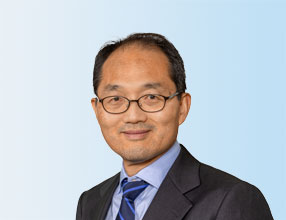
'Law' has existed since the societies of ancient times, for example, in the Code of Ur-Nammu (ancient Mesopotamia) and the Code of Hammurabi (ancient Babylonia). 'Law' dates back to ancient Rome as well, and since then it has incorporated a wide range of ideas and continues to do so. Furthermore, faculties of Law, as research and educational institutions, are considered some of the oldest places to nurture and train professionals, along with faculties of Medicine and faculties of Theology. As such, 'law,' 'jurisprudence,' and 'law faculties' are understood to be traditional and rigorous.
However, law, jurisprudence, and law faculties are not all about rigor. As the saying goes, "Where there is society, there is law." Law exists everywhere in our daily lives, birth, employment, enrolment, marriage, residence, travel, transport, ownership, inheritance, to name a few. In every aspect of our lives we depend on the law and we are inseparable from it. Law plays an invaluable role, sometimes controlling society, sometimes facilitating our activities, sometimes resolving disputes, and sometimes distributing limited resources. Therefore, law is a familiar 'practical science' that will be useful in any future profession and any situation.
Furthermore, the law has dynamism. It can be said that Japan has recently reached a turning point. It is undergoing major changes, such as a shift from expansion to equilibrium and contraction, the widening of various disparities, the emergence of diverse social values, globalization, and fast-paced technological innovation. In such an environment, students of the Law Faculty should be capable of administering the laws that currently exist as well as be able to explore “the law that should exist in the future” in a forward-looking manner, making proposals to society. This is the social role of the Faculty’s students.
Chuo University was founded in 1885 as the Igirisu Horitsu Gakko (English Law School), and the Faculty of Law has embodied the same spirit, prospering for nearly 140 years. It boasts a comprehensive research and teaching environment incorporating numerous specialists, not only research faculty but also many practitioner faculty members, a rich curriculum to train students in legal and social competences, and unparalleled scholarship, study abroad, and qualification support systems. The Law Faculty is determined to continue fulfilling our social responsibilities, moving forward into the rapidly changing future while respecting our long-standing traditions.
Kenichiro ENDO Dean, Faculty of Law

